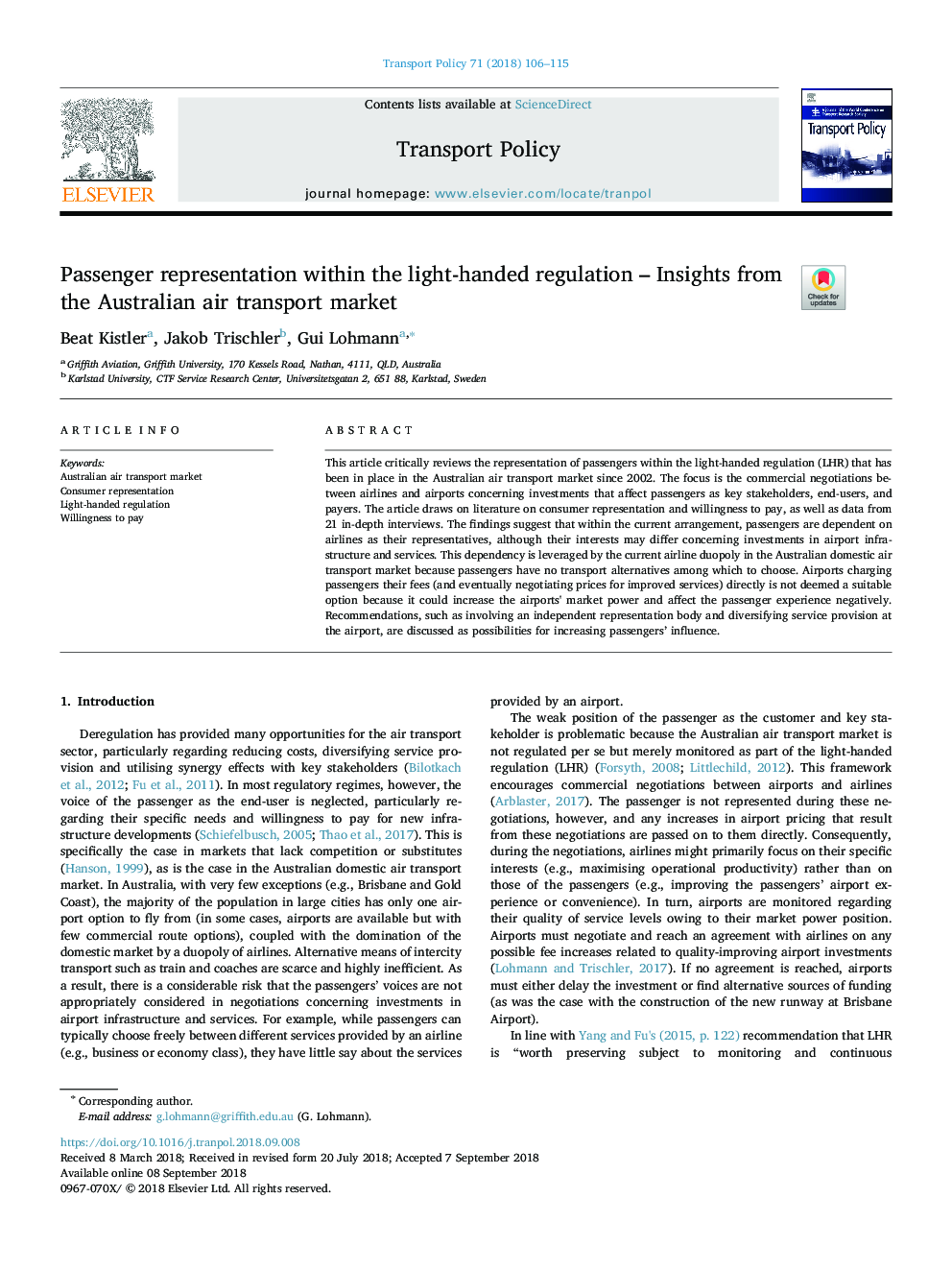| Article ID | Journal | Published Year | Pages | File Type |
|---|---|---|---|---|
| 9953251 | Transport Policy | 2018 | 10 Pages |
Abstract
This article critically reviews the representation of passengers within the light-handed regulation (LHR) that has been in place in the Australian air transport market since 2002. The focus is the commercial negotiations between airlines and airports concerning investments that affect passengers as key stakeholders, end-users, and payers. The article draws on literature on consumer representation and willingness to pay, as well as data from 21 in-depth interviews. The findings suggest that within the current arrangement, passengers are dependent on airlines as their representatives, although their interests may differ concerning investments in airport infrastructure and services. This dependency is leveraged by the current airline duopoly in the Australian domestic air transport market because passengers have no transport alternatives among which to choose. Airports charging passengers their fees (and eventually negotiating prices for improved services) directly is not deemed a suitable option because it could increase the airports' market power and affect the passenger experience negatively. Recommendations, such as involving an independent representation body and diversifying service provision at the airport, are discussed as possibilities for increasing passengers' influence.
Related Topics
Social Sciences and Humanities
Social Sciences
Geography, Planning and Development
Authors
Beat Kistler, Jakob Trischler, Gui Lohmann,
